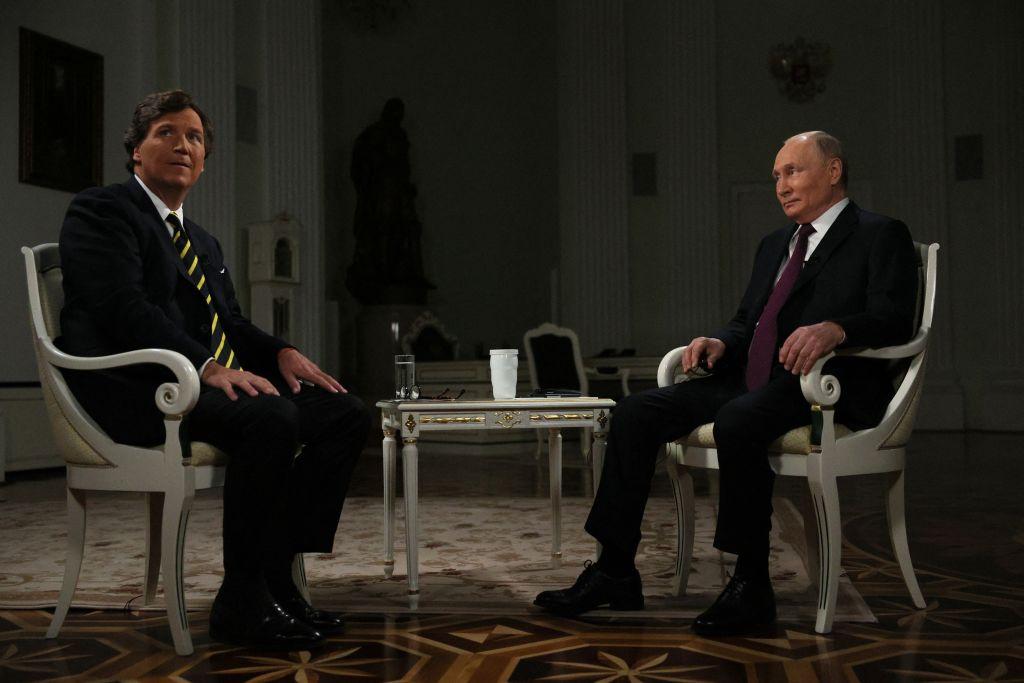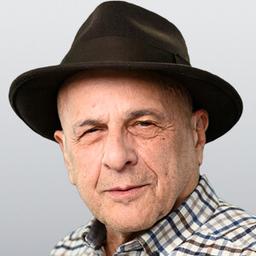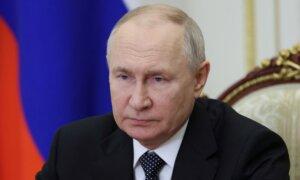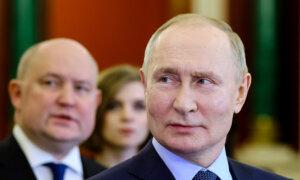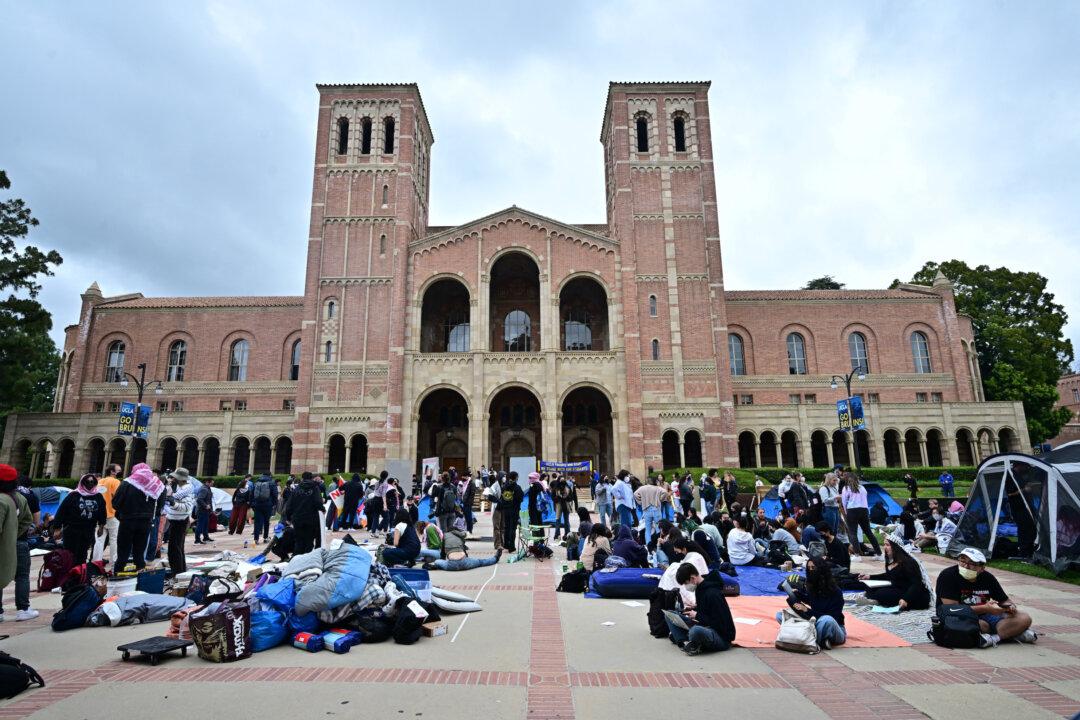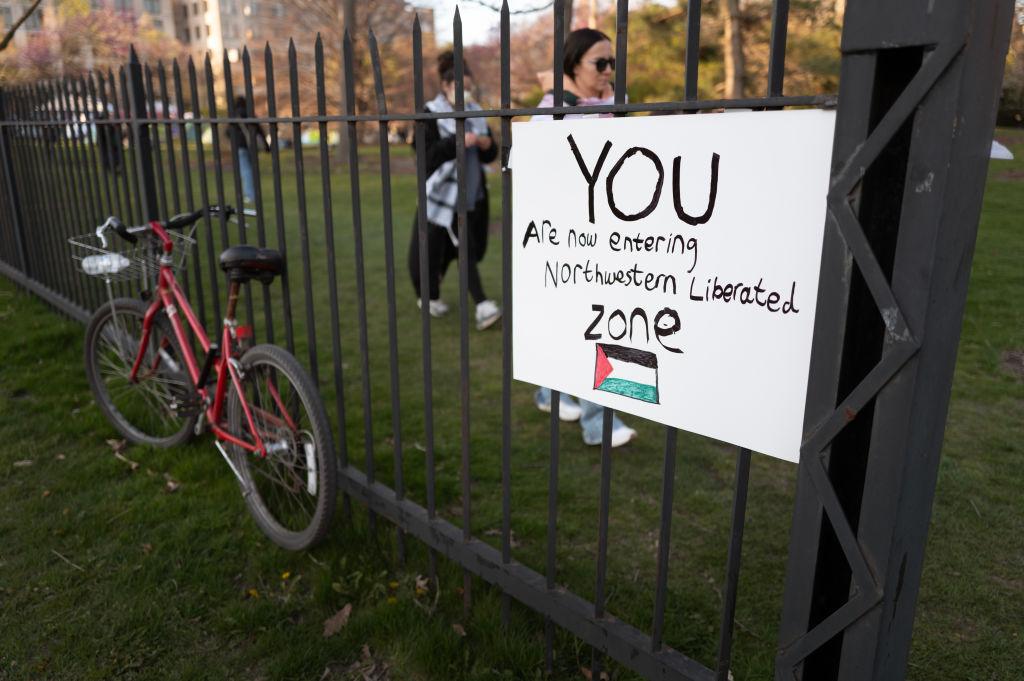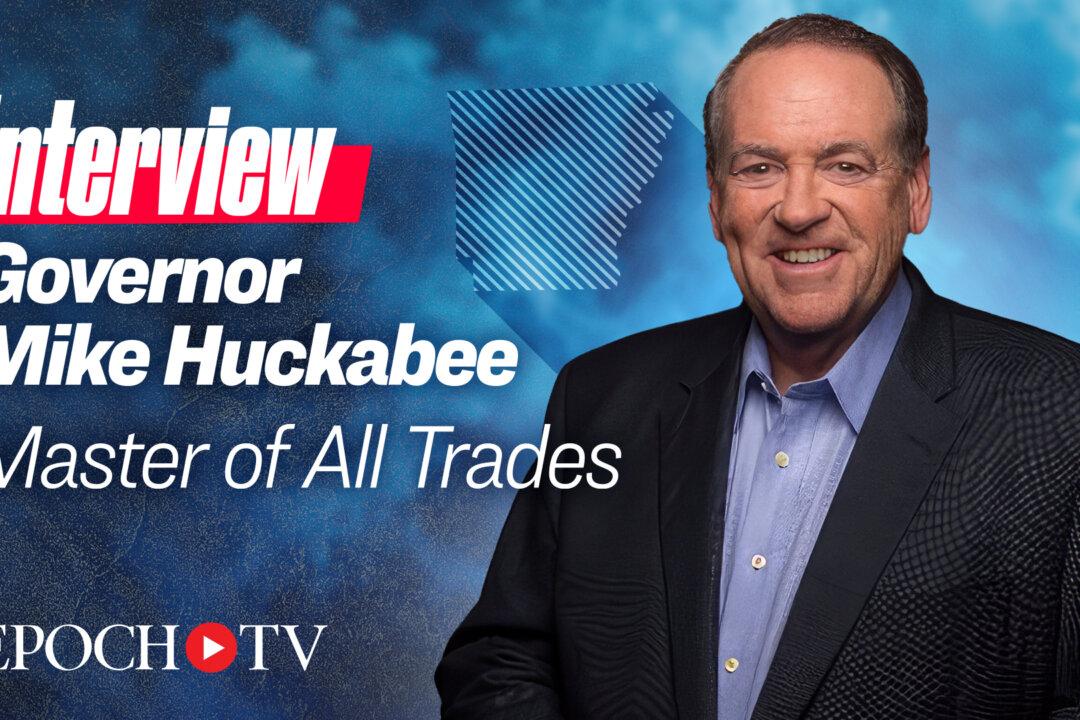To say I was “fascinated” and “riveted” by “fired Fox News host,” as he playfully calls himself, Tucker Carlson’s interview of Russian President Vladimir Putin is actually an understatement and does not really reflect the experience of watching the event.
It was an interview unlike any other I have ever watched—something that seemed more out of fiction, a scene from a play by Bertolt Brecht or an encounter ripped from the pages of Leo Tolstoy or Fyodor Dostoevsky.
We were being offered a real-time glimpse for more than two hours into the reasoning and personality of an often ruthless dictator, albeit one who remains popular, to a great extent, in his own country.
How many times have we been able to see that?
I can think of none.
Those who criticize Mr. Carlson for offering us this either have total disrespect for the intelligence of the public, quite common among our politicians and pundits, or their own personal axes to grind—envy, perhaps.
Watching and listening to Mr. Putin generates many complex reactions, from thinking he’s a deranged thug to being beguiled by him, but these are the kinds of contradictory responses an adult mind must be able to contain to be, well, an adult mind.
It will take a long time to digest fully what we have seen, if indeed we ever can.
The host evidently feels the same way.
Since we are friends, I texted Mr. Carlson my congratulations after I viewed it. I think I can fairly give his response because it seems like something he would easily say in public. Also in these times, anyone who thinks their text messages are private is delusional.
He wrote: “Thank you. It was fascinating. I’m still thinking about what it meant.”
I’m certain most of us watching have a similar reaction.
Mr. Putin, per his own wishes, began with a half-hour disquisition on the history of Eastern Europe, what he called for obvious reasons “The Russian Lands.” It’s hard to explain—everyone must see this for themselves—but this was simultaneously boring, even tedious, but also fascinating.
You could read this confusion in Mr. Carlson’s expression. Few, if any, of us know that history in such detail.
Unlike leaders we can think of, Mr. Putin did not seem the slightest bit senile but, on occasion, on the edge of a certain kind of madness.
This was all by way of preparation for Mr. Putin’s well-planned attempt to explain himself and his attacks on Ukraine to the American public and much of the Western world as well.
These explanations were again contradictory, sometimes making some sense yet often sounding defensive and fake.
In reality, he just wanted those “Russian lands” back. He insisted he would go no farther than unspecified parts of Ukraine, probably the Donbas region, and that the idea he would go after the rest of the former Soviet Union—Lithuania, Latvia, and so forth—was ridiculous.
Frankly, I believed that last part on the grounds that he, and most likely the Russian people, had had enough.
But what interested me most in the interview is that between the lines, maybe not so far between, is that Mr. Putin believes the real battle between nations is between their more permanent intelligence agencies, not their impermanent and superficial leaders.
He is an ex-KGB agent, after all, and pointed, during the interview, to the role of the CIA in upending the leadership in Ukraine and thus being the inadvertent instigators of the war that has transpired.
Do I believe that?
Let’s put it this way: I don’t disbelieve it.
It would be interesting to hear what presidential candidate Robert F. Kennedy Jr. has to say about the matter, since his criticisms of the CIA, particularly in the matter of the assassination of his uncle President John Fitzgerald Kennedy, are well known.
Someone should ask whether he has seen the interview.
Was Mr. Putin just “passing the buck,” or was he on to something?
Also notable during the interview was Mr. Putin’s contention that President Bill Clinton at first considered the idea of Russia’s joining NATO and then reneged on the advice of his “team.”
True or false? Will we hear from President Clinton? Would we believe him if we did?
As our host said, “I’m still thinking about what it meant.”
In my case, I may never come to a conclusion. But I have seen ... something.
I say that although I am no stranger to Russia. I have spent time in the country, twice during the Soviet era and twice thereafter. Still, it is a conundrum.
Mr. Putin wobbled for a bit but at the end appeared to lean toward a release. If this happens, score one for Tucker.
